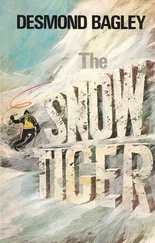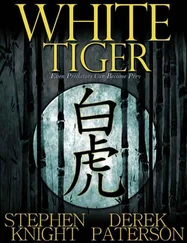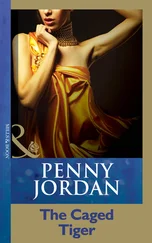There was a traffic island separating the two sides of the road, and trees had been planted in the island. I sat down under a tree.
The road was dead-then two cars went by, one behind the other, their headlights making a continuous ripple on the leaves, like you see on the branches of trees that grow by a lake. How many thousands of such beautiful things there must be to see in Delhi. If you were just free to go wherever you wanted, and do whatever you wanted.
A car was coming straight toward me, flashing its headlights on and off and sounding its horns. The Honda City had done a U-turn-an illegal U-turn, mind you-down the road, and was charging right at me, as if to plow me over. Behind the wheel I saw Pinky Madam, grinning and howling, while Mr. Ashok, next to her, was smiling.
Did I see a wrinkle of worry for my fate on his forehead-did I see his hand reach across and steady the steering wheel so that the car wouldn't hit me?
I like to think so.
The car stopped half a foot in front of me, with a screech of burning rubber. I cringed: how my poor tires had suffered, because of this woman.
Pinky Madam opened the door and popped her grinning face out.
"Thought I had really left you behind, Mr. Maharaja?"
"No, madam."
"You're not angry, are you?"
"Not at all." And then I added, to make it more believable, "Employers are like mother and father. How can one be angry with them?"
I got into the backseat. They did another U-turn across the middle of the avenue, and then drove off at top speed, racing through one red light after the other. The two of them were shrieking, and pinching each other, and making giggling noises, and, helpless to do anything, I was just watching the show from the backseat, when the small black thing jumped into our path, and we hit it and knocked it over and rolled the wheels of the car over it.
From the way the wheels crunched it completely, and from how there was no noise when she stopped the car, not even a whimper or a barking, I knew at once what had happened to the thing we had hit.
She was too drunk to brake at once-by the time she had, we had hurtled on another two or three hundred yards, and then we came to a complete stop. In the middle of the road. She had kept her hands on the wheel; her mouth was open.
"A dog?" Mr. Ashok asked me. "It was a dog, wasn't it?"
I nodded. The streetlights were too dim, and the object-a large black lump-was too far behind us already to be seen clearly. There was no other car in sight. No other living human being in sight.
As if in slow motion, her hands moved back from the wheel and covered her ears.
"It wasn't a dog! It wasn't a-"
Without a word between us, Mr. Ashok and I acted as a team. He grabbed her, put a hand on her mouth, and pulled her out of the driver's seat; I rushed out of the back. We slammed the doors together; I turned the ignition key and drove the car at full speed all the way back to Gurgaon.
Halfway through she quieted down, but then, as we got closer to the apartment block, she started up again. She said, "We have to go back."
"Don't be crazy, Pinky. Balram will get us back to the apartment block in a few minutes. It's all over."
"We hit something, Ashoky." She spoke in the softest of voices. "We have to take that thing to the hospital."
"No."
Her mouth opened again-she was going to scream again in a second. Before she could do that, Mr. Ashok gagged her with his palm-he reached for the box of facial tissues and stuffed the tissues into her mouth; while she tried to spit them out, he tore the scarf from around her neck, tied it tightly around her mouth, and shoved her face into his lap and held it down there.
When we got to the apartment, he dragged her to the elevator with the scarf still around her mouth.
I got a bucket and washed the car. I wiped it down thoroughly, and scrubbed out every bit of blood and flesh-there was a bit of both around the wheels.
When he came down, I was washing the tires for the fourth time.
"Well?"
I showed him a piece of bloodied green fabric that had got stuck to the wheel.
"It's cheap stuff, sir, this green cloth," I said, rubbing the rough material between my fingers. "It's what they put on children."
"And do you think the child…" He couldn't say the word.
"There was no sound at all, sir. No sound at all. And the body didn't move even a bit."
"God, Balram, what will we do now-what will we-" He slapped his hand to his thigh. "What are these children doing, walking about Delhi at one in the morning, with no one to look after them?"
When he had said this, his eyes lit up.
"Oh, she was one of those people."
"Who live under the flyovers and bridges, sir. That's my guess too."
"In that case, will anyone miss her…?"
"I don't think so, sir. You know how those people in the Darkness are: they have eight, nine, ten children-sometimes they don't know the names of their own children. Her parents-if they're even here in Delhi, if they even know where she is tonight-won't go to the police."
He put a hand on my shoulder, the way he had been touching Pinky Madam's shoulder earlier in the night.
Then he put a finger on his lips.
I nodded. "Of course, sir. Now sleep well-it's been a difficult night for you and Pinky Madam."
I removed the maharaja tunic, and then I went to sleep. I was tired as hell-but on my lips there was the big, contented smile that comes to one who has done his duty by his master even in the most difficult of moments.
The next morning, I wiped the seats of the car as usual-I wiped the stickers with the face of the goddess-I wiped the ogre-and then I lit up the incense stick and put it inside so that the seats would smell nice and holy. I washed the wheels one more time, to make sure there was not a spot of blood I had missed in the night.
Then I went back to my room and waited. In the evening one of the other drivers brought a message that I was wanted in the lobby-without the car. The Mongoose was waiting for me up there. I don't know how he got to Delhi this fast-he must have rented a car and driven all night. He gave me a big smile and patted me on the shoulder. We went up to the apartment in the elevator.
He sat down on the table, and said, "Sit, sit, make yourself comfortable, Balram. You're part of the family."
My heart filled up with pride. I crouched on the floor, happy as a dog, and waited for him to say it again. He smoked a cigarette. I had never before seen him do that. He looked at me with narrowed eyes.
"Now, it's important that you stay here in Buckingham Towers B Block and not go anywhere else-not even to A Block-for a few days. And not say a word to anyone about what happened."
"Yes, sir."
He looked at me for a while, smoking. Then he said again, "You're part of the family, Balram."
"Yes, sir."
"Now go downstairs to the servants' quarters and wait there."
"Yes, sir."
An hour passed, and then I got called upstairs again.
This time there was a man in a black coat sitting at the dinner table next to the Mongoose. He was looking over a printed piece of paper and reading it silently with his lips, which were stained red with paan. Mr. Ashok was on the phone in his room; I heard his voice through the closed door. The door to Pinky Madam's room was closed too. The whole house had been handed over to the Mongoose.
"Sit down, Balram. Make yourself comfortable."
"Yes, sir."
I squatted and made myself uncomfortable again.
"Would you like some paan, Balram?" the Mongoose asked.
"No, sir."
He smiled. "Don't be shy, Balram. You chew paan, don't you?" He turned to the man in the black coat. "Give him something to chew, please."
The man in the black coat reached into his pocket and held out a small green paan. I stuck my palm out. He dropped it into my palm without touching me.
Читать дальше












